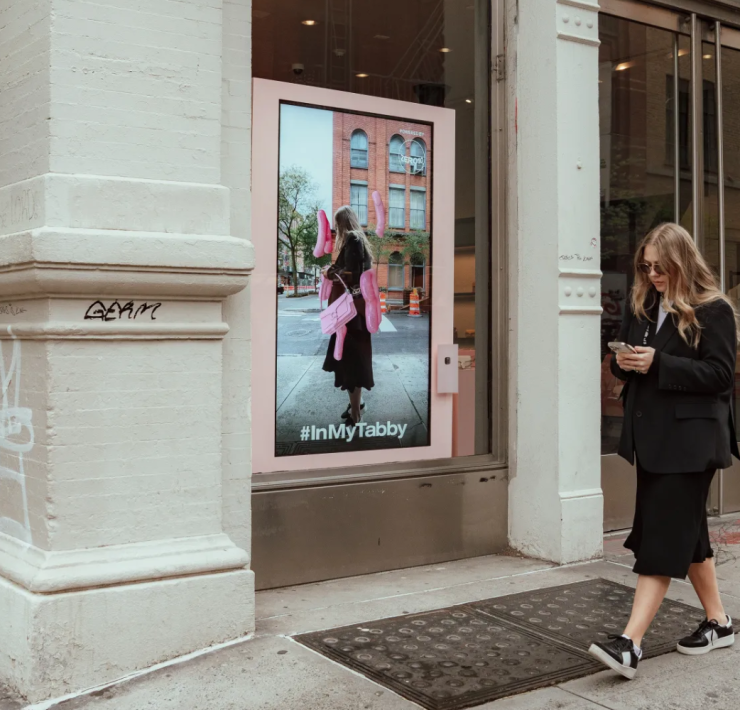Which Fashion Tech Innovators Are Defying the Funding Drought?

The “metaverse winter”, which was long predicted, has officially arrived. The wave of excitement that propelled metaverse and Web3 projects into the spotlight last year is now diminishing. The crash of Silicon Valley Bank has dealt a blow to tech startups across various sectors, including fashion. This instability is further highlighted by the recent decisions of Signature Bank, Credit Suisse, and First Republic, all following suit. The venture ecosystem appears increasingly uncertain. Furthermore, according to data from Layoffs.fyi, the number of tech employee layoffs globally in 2023 is rapidly approaching 200,000.
With VC dollars dwindling, global first-quarter funding for Q1 2023 has seen a 53 percent decline year-on-year, as reported by Crunchbase data. VC-backed startups received a total of $76 billion, down from the $162 billion in early 2022. Crypto is faring even worse, with a 79 percent decrease in capital deployment into crypto companies during Q1 2023 (approximately $2.53 billion) compared to the same quarter last year, according to Winnie Lau, vice president at Blocktower Capital.
Due to the scarcity of funds, founders now face a higher burden of proof as VCs have changed their approach to due diligence. Winnie Lau explains that during the market peak, many companies were able to secure large funding rounds based solely on vision and potential, even before having a product or gaining traction. However, the current climate demands more sensible valuations and a focus on the practical aspects of the business.
Sky Canaves, a senior retail and e-commerce analyst at market research firm Insider Intelligence, notes that a “VC winter” is taking place at the moment. She explains that the funding climate for anything unrelated to generative AI is rather grim, and fashion, being a highly discretionary category, faces additional pressure.
According to Carol Hilsum, senior director of product innovation at Farfetch, there has been a noticeable shift in investor expectations since Farfetch’s last Dream Assembly Base Camp incubator cohort, which focused on Web3. She highlights that startups are now required to provide intricate details about their business models, route to profitability, and scalability. Farfetch has adapted its mentorship strategy to emphasize these practical aspects. Startups are expected to have a much clearer value proposition, Hilsum adds.
Incubators like Dream Assembly and NYFTLab aim to assist founders in meeting these new expectations. Farfetch’s second Web3-focused Dream Assembly cohort, which was recently announced, consists of Wovn (previously Artifactor Labs), Decommerce, Me Protocol, Nettle, Solaire, Spin by Lablaco, and Numbers Protocol. NYFTLab’s tenth cohort includes Altr, Hue, Psykhe AI, Sociate, Sparkbox, and Try Your Best.
Despite the challenging landscape, many companies are still successfully raising funds. Several Web3 and metaverse fashion firms have secured significant investments in the first half of this year. Syky, a digital fashion startup led by Alice Delahunt, raised $9.5 million in a series A round led by Alexis Ohanian’s Seven Seven Six. Virtual retail tech developer Emperia raised $10 million in series A, and Web3 infrastructure company Spatial Labs secured $10 million in its seed funding round. Additionally, DressX raised $15 million in series A funding in March.
However, insiders view these series A successes as outliers, as early-stage funding remains more buoyant. Industry insiders note that later-stage companies face challenges due to higher valuations from previous rounds. These companies are hesitant to sell at a significant discount or engage in fire sales. Additionally, with the recent shake-out in the tech sector, companies are more cautious about investing substantial sums in other companies and their teams.
Practicality is becoming the new focus, replacing the hype that once surrounded the metaverse and Web3. Sky Canaves from Insider Intelligence emphasizes the importance of practical applications for cutting-edge technologies. Supply chain traceability, authentication, and community- and loyalty-building are now at the forefront. Winnie Lau also highlights a renewed interest in infrastructure deals within the industry.
Carol Hilsum from Farfetch has noticed a shift towards Web2 use cases among the startups in the Dream Assembly cohort. Rather than solely focusing on independent NFT strategies, companies are now exploring ways to merge Web3 principles and technologies into their existing Web2 tech stack. This shift reflects a greater emphasis on practicality and integration.
The NYFTLab cohort also reflects a similar trend, with startups like TYB incorporating blockchain technology into their backend operations, while Sociate’s Maia chatbot aims to deliver a human-led luxury shopping experience. However, practicality has always been at the core of NYFTLab’s approach. Retailers and brands evaluate startups based on their ability to address immediate business needs. The focus is on solutions that can make a tangible impact in the present.
Generative AI emerges as a safe bet in the current venture landscape, according to Canaves. She identifies it as a bright spot where investors are increasingly directing their funds. This is evident in the startup accelerator Y Combinator’s Winter 2023 cohort, where generative AI startups comprise 22 percent of the supported companies. In NYFTLab’s cohort, one-third of the startups are AI-focused.
Generative AI offers practical and cost-effective solutions for businesses, allowing them to increase efficiency and reduce costs. For example, Adore Me has been leveraging generative AI since April 2022 to create product descriptions. There is potential for fashion-tech startups in the metaverse and Web3 spaces to pivot towards generative AI. Canaves suggests that companies involved in digital twins or 3D design can incorporate generative AI into their business models. Some startups are already taking advantage of this synergy. DressX utilized AI to design wearable bucket hats, while Cala integrated AI into their supply chain for physical product design. Canaves anticipates that more metaverse and Web3 companies will explore the integration of AI technologies.
Luxury brands and retailers continue to invest in Web3 and metaverse spaces, signaling their commitment to innovation. Major players like Nike and Adidas are actively participating in these areas, demonstrating that the fashion industry recognizes the importance of investing and experimenting in emerging technologies. LVMH, Burberry, Richemont, Selfridges, and Saks are among the returning and new participants in NYFTLab’s mentorship program. These brands and retailers engage with the program to discover new technologies that can help them differentiate themselves in a competitive market. The increasing number of retailers joining NYFTLab in recent years reflects the continued interest in frontier tech. The appetite for innovation remains strong.
According to Carol Hilsum from Farfetch, luxury brands are in need of these startups to drive emerging ideas, innovation, and new technology. The luxury industry now relies on digital and software to support various strategic areas, including sustainability, digital fashion, Web3, and supply chain management. Hilsum emphasizes the necessity of close collaboration between luxury brands and the startup ecosystem, as partnerships with startups can fuel strategic growth and bring fresh perspectives to the sector.
The current landscape for fashion-tech startups may present challenges, but there are still opportunities for growth and success. Startups must adapt to the changing investor expectations, focusing on practicality, profitability, and scalability. By embracing technologies like generative AI and forging partnerships with luxury brands, startups can navigate the evolving industry landscape and drive innovation forward. With the support of investors, incubators, and industry leaders, fashion-tech startups can continue to shape the future of the fashion industry.






